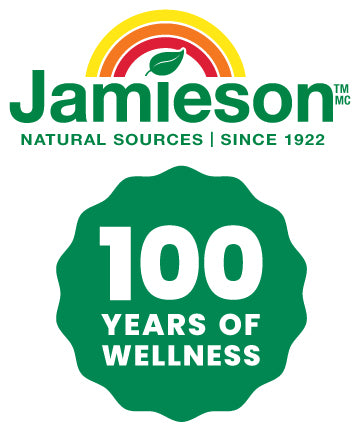For the long-term health of Canadian men, a good start is ensuring consistent quality sleep, physical activity, and a nutritious diet. Even for those who feel healthy, there are a few health conditions to be aware of. Here’s a breakdown of 3 common conditions that occur in men and what can be done to reduce the risk.
Heart Disease
FACT: Men are 2x more likely to suffer a heart attack than women and are first diagnosed with heart disease about 10 years younger than women (average age of men is 55-64 vs. 65-74 in women).[1]
Heart disease is the 2nd leading cause of death in Canada, and roughly 1 in 12 Canadian adults are diagnosed with it.¹
What you can do:
Reduce heart disease risk by making the following lifestyle changes:
- eat a well-rounded healthy diet with plenty of fresh fruits and vegetables
- increase physical activity
- limit alcohol
- maintain a healthy weight
- stay smoke-free¹
Supplements to support cardiovascular health:
CoQ10:
According to Health Canada, CoQ10 is an antioxidant and works to help support cardiovascular health.[2] CoQ10 may also help those on cholesterol-lowering medications. Statin drugs are some of the most commonly prescribed drugs in Canada, and are used to reduce the risk of heart disease.[3] Unfortunately, about 60% of people taking statin drugs stop their medication because of painful muscular side effects.[4] Researchers in 2018 analyzed 12 separate research trials and concluded that “CoQ10 supplementation may be a promising complementary approach for statin-associated muscle symptoms.”[5] Basically, those starting or currently taking a cholesterol-lowering statin drug (Lipitor, Lescol, Mevacor, Pravachol, Crestor or Zocor), should talk to their doctor about taking CoQ10 as well.
Omega-3s are a specific type of fat required by our bodies to maintain overall well-being. However, they are only found in a few types of foods, such as raw nuts, raw seeds and fish. Since these are not the most commonly consumed foods, it has been found that only 2.6% of Canadian adults have a healthy omega-3 blood level, which is associated with a low risk of cardiac heart disease.[6]
A Statistics Canada health report found that moving from a high risk to low risk omega index level, reduced cardiac events (such as heart attacks) by 90%! They also stated that a healthy omega-3 level is easily achievable by supplementing daily with an omega-3 fish oil.⁶
Diabetes
FACT: Each year more Canadian men are being diagnosed with diabetes; Between 2016 and 2017, the percentage of males diagnosed with diabetes increased from 7.6% to 8.4%, while females stayed at 6.3% of the population.[7]
What is Diabetes?
- Type 1 Diabetes is an autoimmune disorder in which the immune system destroys pancreas cells that make insulin. It is thought to be caused by genetics and / or the environment.
- Type 2 Diabetes occurs when the pancreas does not make enough insulin, and / or your body isn’t able to use the insulin it makes. Type 2 diabetes is more common than type 1, and there are several possible causes, including obesity, ethnic background, family history and other environmental factors.[8]
What you can do:
Reduce the risk of type 2 diabetes with lifestyle changes:
- eat well-balanced healthy meals; avoid refined carbohydrates and processed foods with added sugars; instead choose high-fibre whole grains, vegetables and protein-rich meals.
- increase physical activity
- work to achieve a healthy weight[9]
Supplements that can help regulate blood sugar:
According to Health Canada, the mineral chromium provides support for healthy glucose metabolism as well as helping the body to metabolize carbohydrates and fats.[10] There is also a great deal of interest in research regarding apple cider vinegar and its effects on glycemic control.[11] When researchers looked at a combination of clinical trials, they concluded that apple cider vinegar can be effective in reducing glucose and insulin levels after meals and that it could be added to other medical therapies for improving glycemic control.[12]
Enlarged Prostate
An enlargement of the prostate called benign prostatic hyperplasia (BPH) is a common non-cancerous condition of the prostate. It is caused by an overgrowth of cells (called hyperplasia) around the urethra. By age 70, almost all men will have some prostate enlargement. Although BPH doesn’t increase the risk of prostate cancer, it can cause unpleasant symptoms. When an enlarged prostate puts pressure on the urethra and bladder, it causes urination problems.[13]
BPH can cause any of the following symptoms:
- blood in the urine
- difficulty controlling the bladder (incontinence)
- difficulty passing urine
- difficulty starting urine stream
- more frequent urination, especially at night
- sudden urge to urinate
- slow urine stream
- Unable to empty the bladder completely, which can lead to urinary tract infections and bladder stones¹³
Risk factors that increase your chance of developing BPH include:
- extra abdominal fat
- lack of physical activity¹³
What you can do:
Lifestyle changes may help mild BPH symptoms:
- limit fluid consumption, particularly before bedtime. Avoid caffeinated beverages and spicy foods
- try pelvic floor exercises to strengthen muscles which help control urination
- avoid constipation which can put pressure on the bladder, by increasing high-fibre foods¹³
Supplements to support a healthy prostate / BPH
According to Health Canada, Saw Palmetto is “used in Herbal Medicine to help relieve the urologic symptoms (e.g. weak urine flow/ incomplete voiding/frequent daytime /night time urination) associated with mild to moderate benign prostatic hyperplasia (BPH).”[14]
[1] Public Health Agency of Canada. (2017). Heart Disease in Canada. Accessed April 11, 2019 at: https://www.canada.ca/en/public-health/services/publications/diseases-conditions/heart-disease-canada.html
[2] Health Canada. (2018). Coenzyme Q10 (Ubiquinone-10) Monograph. Accessed Jan 2, 2019 at: http://webprod.hc-sc.gc.ca/nhpid-bdipsn/atReq.do?atid=coenzyme.q10&lang=eng
[3] Hennesst DA. et al. (2016). Health Reports Population health impact of statin treatment in Canada. Accessed Jan 4, 2019 at: https://www150.statcan.gc.ca/n1/pub/82-003-x/2016001/article/14305-eng.htm
[4] Rosenson RS. et al. (2017). The Statin-Associated Muscle Symptom Clinical Index (SAMS-CI: Revision for Clinical use, Content Validation, and Inter-rater Reliability. Cadiovasc Drugs Ther.; 31(2): 179–186.
[5] Qu H. et al. (2018). The effect of statin treatment on circulating coenzyme Q10 concentrations: an updated meta-analysis of randomized controlled trials. Eur J Med Res. Nov 10;23(1):57.
[6] Langlois, Kellie & Ratnayake, Walisundera M.N. (2015). Omega-3 Index of Canadian adults. Statistics Canada Health Reports. 82-003-x Vol. 26 No.11:p3-11.
[7] Statistics Canada (2018). Health Fact Sheets Diabet es. Accessed April 11, 2019 at: https://www150.statcan.gc.ca/n1/pub/82-625-x/2018001/article/54982-eng.htm
[8] Diabtes Canada. Causes of Diabetes. Accessed April 18, 2019 at: https://www.diabetes.ca/signs,-risks---prevention/causes-of-diabetes
[9] Diabetes Canada. Preventing Diabetes. Accessed April 18, 2019 at: https://www.diabetes.ca/signs,-risks---prevention/preventing-diabetes
[10] Health Canada. Monograph: Chromium (from non-picolinate sources). Accessed Feb 8, 2019 at: http://webprod.hc-sc.gc.ca/nhpid-bdipsn/
monoReq.do?id=64&lang=eng
[11] Siddiqui FJ et al. (2018). Diabetes Control: is Vinegar a Promising Candidate to Help Achieve Targets? J Evid Based Integr Med. ;23:2156587217753004.
[12] Shishehbor F Mansoori A Shirani F. (2017). Vinegar consumption can attenuate postprandial glucose and insulin responses; a systematic review and meta-analysis of clinical trials. Diabetes Res Clin Pract. May;127:1-9
[13] Canadian Cancer Society. Benign prostatic hyperplasia (BPH). Accessed April 11, 2019 at: http://www.cancer.ca/en/cancer-information/cancer-type/prostate/prostate-cancer/benign-prostatic-hyperplasia/?region=bc
[14] Health Canada. (2018). Saw Palmetto – Serenoa Repens Monograph. Accessed April 11, 2019 at: http://webprod.hc-sc.gc.ca/nhpid-bdipsn/atReq.do?atid=saw.palmetto.sabal&lang=eng




